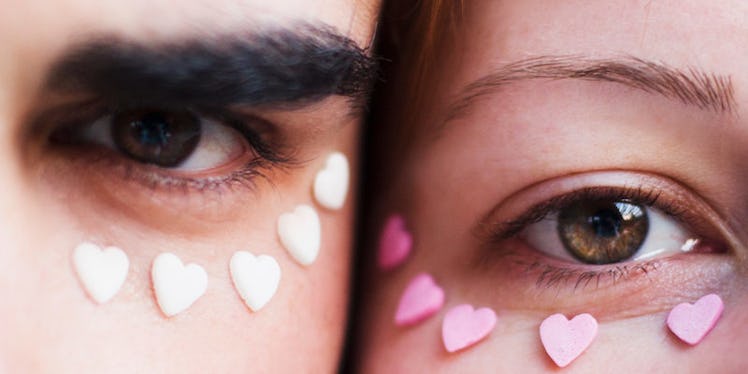
Why True Self-Love Is Loving Yourself Even When You Feel Like Sh*t
I think there's a common misconception in today's society about what “self-love” really is and how we achieve it. There's this idea floating around that self-love means you are content, happy and dare I say “in love” with yourself, your life, and everything you do, day in and day out, without exception.
In a recent Elite Daily article, Sheena Sharma rightfully questions this so-called “self-love” by asking, “Like, does it mean to think highly of yourself? Or does it mean to do things you love to do? Could it mean that you don't yet think highly of yourself, but you're making life changes so that one day, you hopefully will?”
In her article, the point that Sheena is questioning is the claim that you cannot fully love someone else until you love yourself first. While I wholeheartedly agree with the validity of this concept in theory, I think in practice, in today's society, it's failing. And I think it's failing because of our understanding of love.
Sheena goes on to say, “I don't love myself. But I also don't hate myself. Some days, I'm pleasantly satisfied, and other days I feel like an epic embarrassment to myself. No feeling I feel is permanent. I am static and ever-changing and unsure and certain all at the same time. I think it's naive to definitively say, 'I love myself.' And if you can say that and mean it, well, I call bullsh*t on you.”
And therein lies the misconception and the insight.
The reality is, that self-love, like all great loves, is fluid. No feeling, whether it be love or hate, envy or anger, is static. “Self-love” requires developing a relationship with yourself that is deep enough to understand that it will undoubtedly ebb and flow, as all relationships do. Accepting this, accepting that some days will feel good and others will feel like an “epic embarrassment” and still being able to declare “I love myself” is true self-love.
The importance of this is twofold. It establishes both our ability to love, and our ability to be loved in return.
It is important to establish a relationship of self-love and acceptance before trying to love and accept someone else so that you can learn how to love. Because if you think you can only love something – or someone – that is perfect, then your relationship will never survive the ups and downs of this life.
If you think that love only exists on the days when you're “pleasantly satisfied,” and eludes you on the days that are harder, the days that make you question everything, then it's true that you will never be able to fully love yourself. (Or anyone else, for that matter.) Real love is unconditional. It's loving yourself, or someone else, on the days it's easy to love, and also on the days it's harder to love.
On the other side of the love equation, as Stephen Chbosky says in "The Perks of Being a Wallflower," “We accept the love we think we deserve.” And if you think you only deserve love on the days you feel like your best self, then you're susceptible to finding yourself with someone else who believes that also.
The truth is, you deserve love every day, whether you feel like the person you've always wanted to be, or you're still striving to get there. It's knowing you love yourself even on the days you don't feel it. And if you can't confidently declare, “I love myself,” even when you're struggling or feeling down, then it's likely you'll find yourself settling for love from someone else that is also conditional.
Self-love is a key first step in relationship development because it teaches important values of acceptance both of yourself and someone else, loyalty, and believing in and loving someone even when you don't feel like it anymore. Nothing is perfect, not Sheena, or me, or you or anyone else. And loving someone, despite their imperfections, is an arduous task. But starting with yourself, declaring that you love yourself despite your imperfections, despite your frustrations, is a good place to practice unconditional love.
Sheena is right, “if [you] wait until [you're] free of those pesky, self-loathing thoughts that enter [your] mind without [your] permission, [you'll] be waiting forever. Waiting forever to feel right. Waiting forever to feel whole.”
Self-love isn't about waiting to feel right so that you can eventually love yourself. It requires loving yourself even when you don't feel right. So stop waiting. Choose to love yourself regardless of, and in conjunction with those feelings. Because you deserve it, and so does everyone else.